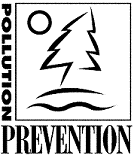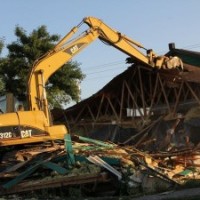Dr. Jay Famiglietti, is a University of California, Irvine, professor and leader in worldwide research using NASA satellites to measure changes in the Earth’s stores of groundwater. Recently, Dr. Famiglietti visited the University of Minnesota to present the findings of his research titled Dwindling Groundwater Reserves as Viewed from Space (UofM video, 1:40:52) including discussion with […]
Archive for the ‘City of Columbia Heights’ Category
Dwindling groundwater reserves – learning from the California experience
 November 26th, 2014
November 26th, 2014  knowtheflow
knowtheflow 
MnTAP Water Conservation Project for Business and Industry
 November 12th, 2014
November 12th, 2014  knowtheflow
knowtheflow Water conservation not only helps to preserve an important natural resource – it’s good business. NOW there is an opportunity to have a engineering intern help a business conserve water as it improves efficiency and reduces operating costs. Your company may be paying twice for the water it uses. First, to purchase the water coming into your […]

Pollution Prevention (P2) week
 September 15th, 2014
September 15th, 2014  knowtheflow
knowtheflow During National Pollution Prevention (P2) week (Sept. 15 – 21, 2014) Americans are asked to consider their everyday decisions that generate pollution. The best way to protect Anoka County’s natural and water resources is to stop creating pollution in the first place. Pollution Prevention (P2) Week highlights community efforts to make pollution prevention a cornerstone of […]

Municipal drinking water quality reports are available
 July 1st, 2014
July 1st, 2014  knowtheflow
knowtheflow Drinking water is safe at Anoka County’s community water supply systems, according to the Minnesota Department of Health’s (MDH) Drinking Water Annual Report 2013. Each year, cities publish reports on the results of water quality tests of their water system. The 2013 water quality reports summarize testing results for 2013 (Jan 1 to December 31). The reports […]

Unused water wells must be sealed for everyone’s health
 May 24th, 2014
May 24th, 2014  knowtheflow
knowtheflow It’s the law: unused wells must be sealed. During this construction and demolition season, the Anoka County Municipal Wellhead Protection Group asks residents, property owners and developers to be on the lookout for old unsealed wells as you dig, demolish and develop. It is estimated that there are over 20,000 unused wells in Anoka County. […]

Anoka County law enforcement provides a safe way to dispose of drugs and protect water resources
 April 15th, 2014
April 15th, 2014  knowtheflow
knowtheflow Don’t flush prescription drugs (or other dangerous chemicals) down the drain. Prescription drugs have the potential to pollute local water resources (groundwater and the Mississippi River) – the source of our drinking water. Proper disposal will not only keep dangerous drugs from being abused but also prevent harm to water and wildlife (e.g. fish and ducks). Safely […]

Coon Rapids and Columbia Heights are GreenStep Cities
 March 31st, 2014
March 31st, 2014  knowtheflow
knowtheflow The City of Coon Rapids has recently been designated a Minnesota GreenStep City to boost sustainability of local natural resources and the quality of life for its citizens. Coon Rapids joins Columbia Heights as the second Anoka County community in the Greensteps program. By adopting best practices, Coon Rapids and Columbia Heights are helping to ensure the sustainability of […]
Groundwater Area includes Columbia Heights and Hilltop
 March 10th, 2014
March 10th, 2014  knowtheflow
knowtheflow Anoka County residents and businesses get their water from wells that draw from groundwater aquifers located directly below us. As Anoka County grows, so does our need for water. Is there enough groundwater? On January 2, 2014 the Minnesota Department of Natural Resources (DNR) had established the North & East Metro Pilot Groundwater Management Area “working […]

The Safe Drinking Water Act is turning 40 years old
 March 6th, 2014
March 6th, 2014  knowtheflow
knowtheflow On December 16, 1974, President Gerald Ford signed into law the Safe Drinking Water Act (SDWA) intended to ensure safe drinking water for the public. The SDWA applies to all public water supply systems including municipal water utilities and wells that serve mobile home parks, schools, churches and office buildings. A home or cabin well system […]

Water protection and management in your community
 March 5th, 2014
March 5th, 2014  knowtheflow
knowtheflow Anoka County communities have established water resource management programs with their watershed management organization or a watershed district. The City’s surface water management programs deal with broad land runoff (“nonpoint” source) and specific wastewater (“point” source) pollution. Point source pollution includes the discharge of treated wastewater effluent through a pipe. Nonpoint sources of pollution result from […]



 Posted in
Posted in 